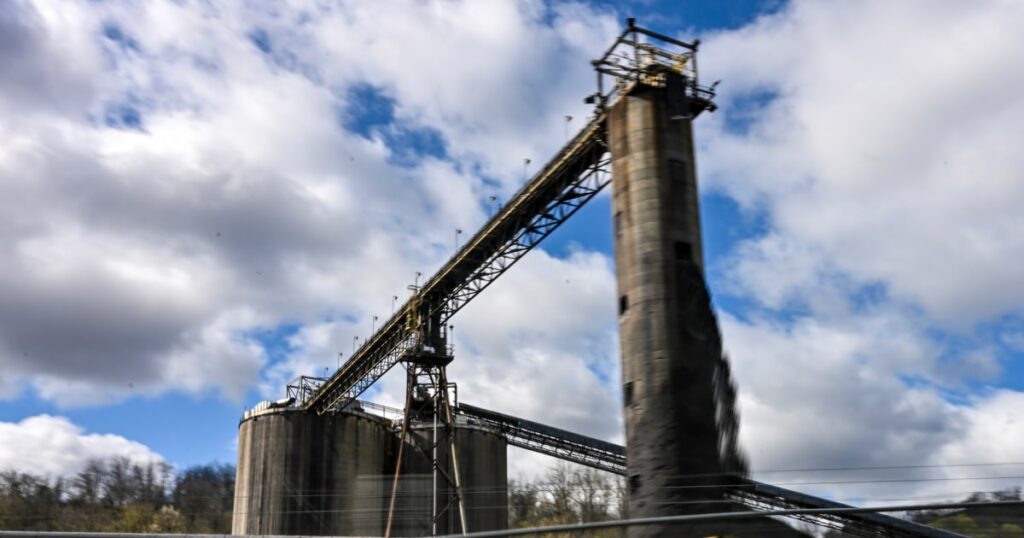
The Trump administration plans to terminate federal workers focused on preventing and responding to work-related illnesses, including “black lung” disease in coal miners, according to an internal government memo obtained by NBC News, despite in recent days reinstating some who had been let go.
Those terminations could threaten critical programs used to screen for health issues in workers with toxic exposures, including 9/11 first responders, according to people who work on or benefit from the programs. Some workers who benefit from those programs have expressed fears that conditions such as cancer or lung disease could go undetected as a result.
Concerns about the future of those programs began earlier this month when the Department of Health and Human Services effectively gutted the National Institute for Occupational Safety and Health (NIOSH), drastically cutting the headcount of an agency that has been around for 55 years. The move was part of a broader plan to reduce the size of the federal workforce, including a massive restructuring of federal health agencies that called for the termination of roughly 20,000 full-time employees.
In an agencywide email sent Wednesday, NIOSH’s director, John Howard, acknowledged “a significant number of [reduction in force] notices sent to staff” and said some staffers were brought back from administrative leave this week as part of “a temporary arrangement to help complete our obligations.” The staffers had received notices on April 1 that they had been placed on leave, with official termination dates set for June.
Howard himself received a termination notice in early April but returned to his post after bipartisan opposition from members of Congress regarding his dismissal.
The notices “created confusion and gaps in information that we are continuing to try to fill,” Howard said in his memo. Some programs within NIOSH will move to a newly created agency known as the Administration for a Healthy America, he said, but it’s unclear how that transition will occur.
One program caught up in the cuts is the Coal Workers’ Health Surveillance Program, a congressionally mandated effort to monitor the health of coal miners. For decades, it offered free X-rays to identify lung scarring in miners who continuously inhale coal dust — what’s colloquially known as “black lung.”
An HHS official said critical NIOSH programs, including the Coal Workers’ Health Surveillance Program, will continue to serve the needs of miners via the newly created Administration for a Healthy America, but did not address the upcoming staffing cuts.
Sen. Shelley Moore Capito, R-W.Va., said Tuesday evening on X that she was encouraged by some NIOSH staff returning to work this week.
“My understanding is that this is temporary, so my focus will continue to be on working with @HHSGov on permanently restoring these functions and personnel in the most efficient and effective manner,” she wrote.
A lawsuit filed earlier this month by a coal miner in West Virginia on behalf of himself and others in his field calls for the program to be reinstated. It accuses HHS of violating the Federal Coal Mine Health and Safety Act — which established the program in 1969 — by terminating staffers involved in black lung screenings. HHS has until Thursday to respond to the suit.
Coal miners have a higher-than-average risk of dying from black lung by virtue of their occupation. One in 10 underground coal miners who worked in mines for at least 25 years had black lung, according to a NIOSH report in 2018. In Central Appalachia, one of the main coal mining regions in the U.S., the rate was 1 in 5.
Scott Laney, an epidemiologist at the Coal Workers’ Health Surveillance Program, said the program diagnosed new cases and provided evidence of the disease to miners filing for disability benefits. He estimated that, due to staffing cuts, there are hundreds of thousands of X-rays currently sitting in the basement of the NIOSH facility in Morgantown, West Virginia.
“There’s a tranche of X-rays that have gone unread in our system, and these miners are waiting to find out whether they have black lung or not,” he said.
On top of that, he said, “if someone calls NIOSH and asks for their personal health information, we don’t have the ability to send that to them right now.”
Dave Dayton, a miner in Marion County, West Virginia, said he has personally taken advantage of NIOSH’s mobile screenings for lung disease. Many miners work long shifts and would otherwise struggle to see a doctor, he said.
“Without NIOSH being there to help us, I don’t know where we’re going and where the miners are going to be without their help,” he said.
 Latest World Breaking News Online News Portal
Latest World Breaking News Online News Portal








